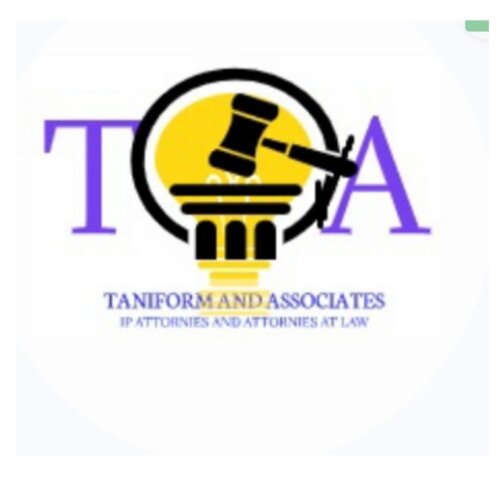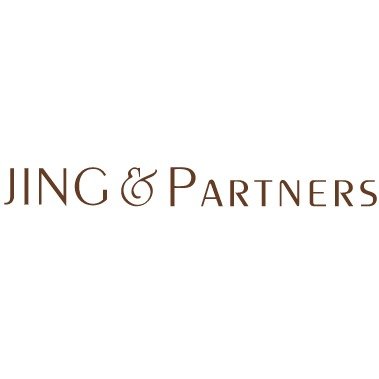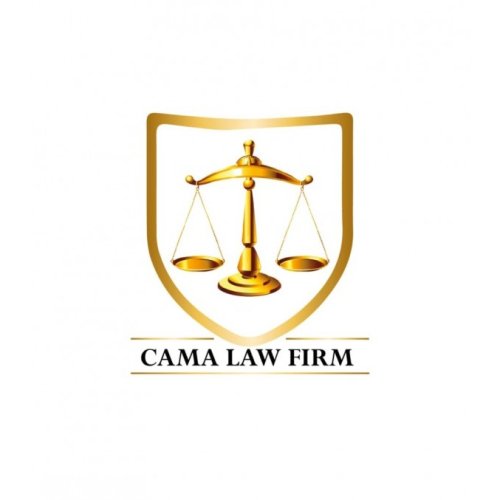Best Nonprofit & Charitable Organizations Lawyers in Cameroon
Share your needs with us, get contacted by law firms.
Free. Takes 2 min.
Or refine your search by selecting a city:
List of the best lawyers in Cameroon
Legal guides written by CHI & Partners Law Firm:
- Ship Registration in Cameroon

Taniform and Associates IP Attorneys and Attorneys at Law
15 minutes Free ConsultationAbout Nonprofit & Charitable Organizations Law in Cameroon
Nonprofit and charitable organizations in Cameroon play a crucial role in addressing social issues, supplementing government efforts in healthcare, education, and poverty alleviation. The legal framework governing these organizations primarily focuses on registration, operations, and compliance with tax regulations. Cameroon provides a supportive environment for nonprofits, with laws that guide their formation and ensure accountability and transparency in their activities. Understanding these laws is critical for anyone looking to establish or manage a nonprofit organization in the country.
Why You May Need a Lawyer
Legal assistance can be essential when navigating the complexities of establishing and managing a nonprofit organization in Cameroon. Common situations where legal help might be required include:
- Formation and Registration: Lawyers can assist in preparing necessary documentation and ensuring compliance with the registration process.
- Compliance and Regulation: Understanding and adhering to national regulations and tax requirements can be challenging, making legal guidance beneficial.
- Dispute Resolution: In cases of internal disagreements or conflicts with other entities, legal expertise can aid in resolving disputes effectively.
- Drafting Agreements: Lawyers can help draft contracts, MOUs (Memoranda of Understanding), and other crucial legal documents.
- Fundraising and Donations: Legal advice may be necessary to ensure fundraising activities comply with legal standards and donor agreements are properly structured.
Local Laws Overview
Cameroonian law provides a structured framework for nonprofit organizations under the Associations Law. Key aspects include:
- Formation and Registration: Nonprofits must register with the Ministry of Territorial Administration. The process requires submission of specific documents such as the organization’s bylaws and objectives.
- Governance: The law stipulates clear guidelines on the governance structure, including the roles and responsibilities of board members and executives.
- Tax Exemption: Registered nonprofits may qualify for tax-exempt status, but they must comply with specific requirements and demonstrate their non-commercial nature.
- Reporting Obligations: Organizations must adhere to regular reporting and financial disclosure obligations to ensure transparency and accountability.
- Dissolution: There are legal procedures for dissolving a nonprofit, including asset distribution, which must comply with set regulations.
Frequently Asked Questions
What is the process for registering a nonprofit in Cameroon?
Registration involves preparing and submitting required documents to the Ministry of Territorial Administration, including bylaws, objectives, and details of directors.
How long does it take to register a nonprofit organization?
The registration process can vary, but it typically takes several weeks to a few months, depending on the complexity of the application and compliance with requirements.
Are nonprofits in Cameroon subject to taxation?
Registered nonprofit organizations may be eligible for tax exemptions, but they must comply with certain conditions to maintain this status.
What governance structures are required for a nonprofit?
Nonprofits must have a defined governance structure with clearly outlined roles for board members and executive personnel, as detailed in their bylaws.
Can a nonprofit organization engage in commercial activities?
Nonprofits can engage in commercial activities as long as these activities support their primary objectives and they meet specific legal requirements.
What legal documents do I need to operate a nonprofit?
Key documents include the organization's bylaws, minutes of meetings, financial statements, contracts, and agreements with donors or partners.
How can a nonprofit address internal disputes?
Nonprofits can resolve internal disputes through mediation, arbitration, or legal intervention if necessary, often guided by their bylaws.
What obligations does a nonprofit have towards donors?
Nonprofits have legal obligations to manage donations responsibly and transparently, providing donors with reports on how funds are used.
How can a nonprofit dissolve if it cannot continue operations?
There are legal procedures for dissolution, including notifying relevant authorities and distributing remaining assets according to regulations.
What is the role of the board of directors in a nonprofit organization?
The board of directors oversees the organization's management, ensuring it remains aligned with its mission and complies with legal requirements.
Additional Resources
For more information or assistance, consider reaching out to the following resources:
- Ministry of Territorial Administration: Oversees registration and compliance of nonprofit organizations in Cameroon.
- National NGO Forum: A platform for NGOs in Cameroon to share resources and knowledge.
- Local Legal Aid Clinics: Provide access to legal advice and support for small or emerging nonprofits.
- Charity Commission Cameroon: Offers guidance on best practices for nonprofit management and governance.
Next Steps
If you need legal assistance with your nonprofit, consider the following steps:
- Research qualified legal professionals specializing in nonprofit law.
- Prepare a list of specific issues or questions you need addressed to streamline consultations.
- Schedule a meeting with a lawyer to discuss your organization's legal needs and how they can assist.
- Ensure ongoing legal support to navigate regulatory changes and maintain compliance.
Taking these steps can help ensure your nonprofit operates within legal frameworks and achieves its mission effectively.
Lawzana helps you find the best lawyers and law firms in Cameroon through a curated and pre-screened list of qualified legal professionals. Our platform offers rankings and detailed profiles of attorneys and law firms, allowing you to compare based on practice areas, including Nonprofit & Charitable Organizations, experience, and client feedback.
Each profile includes a description of the firm's areas of practice, client reviews, team members and partners, year of establishment, spoken languages, office locations, contact information, social media presence, and any published articles or resources. Most firms on our platform speak English and are experienced in both local and international legal matters.
Get a quote from top-rated law firms in Cameroon — quickly, securely, and without unnecessary hassle.
Disclaimer:
The information provided on this page is for general informational purposes only and does not constitute legal advice. While we strive to ensure the accuracy and relevance of the content, legal information may change over time, and interpretations of the law can vary. You should always consult with a qualified legal professional for advice specific to your situation.
We disclaim all liability for actions taken or not taken based on the content of this page. If you believe any information is incorrect or outdated, please contact us, and we will review and update it where appropriate.
Browse nonprofit & charitable organizations law firms by city in Cameroon
Refine your search by selecting a city.















